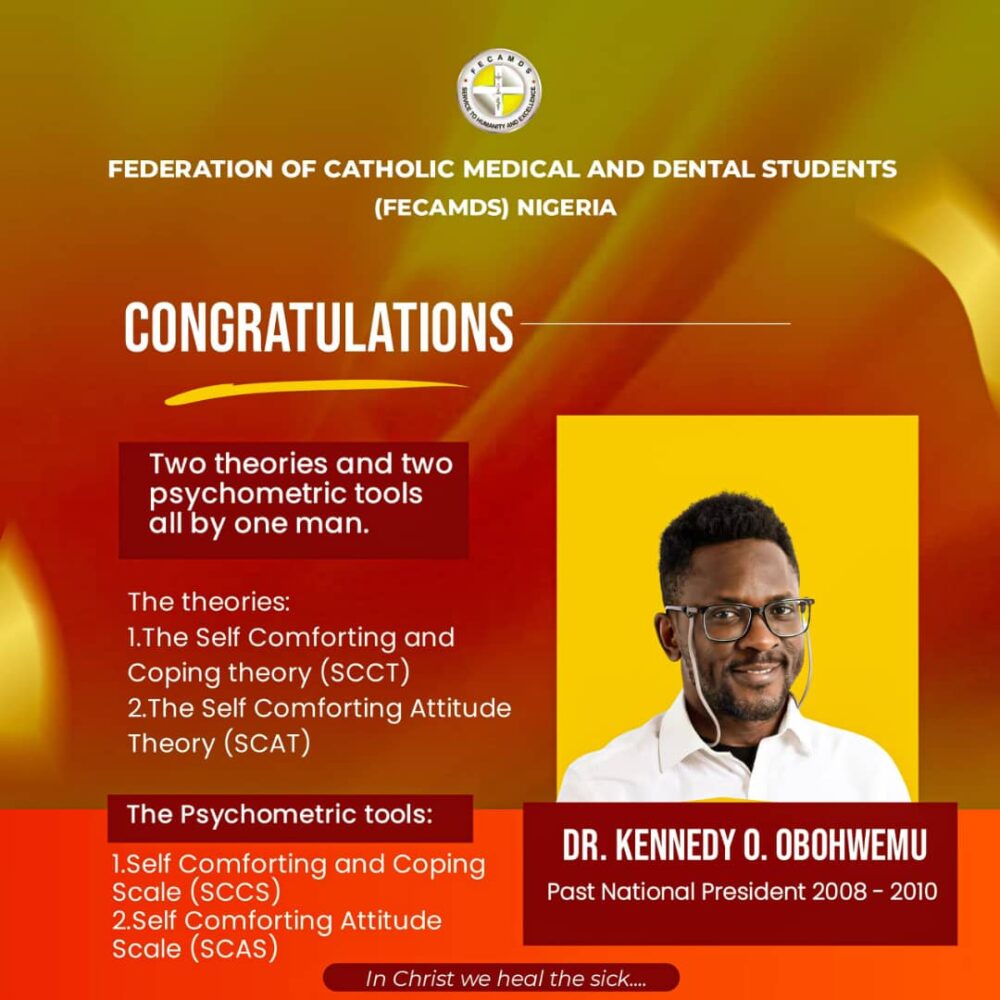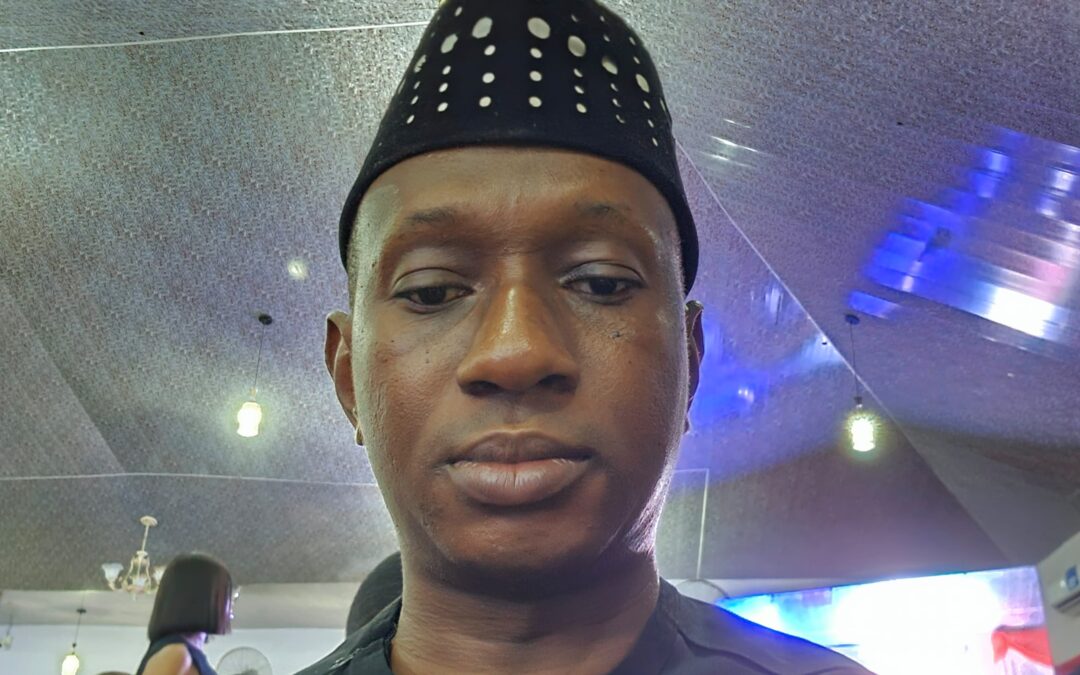Dr. Kennedy Oberhiri Obohwemu Makes History with Four Innovative Psychological Frameworks in Behavioural Health
Dr. Kennedy Oberhiri Obohwemu, a distinguished medical doctor, public health researcher, and academic lecturer, has become the first person in history to develop four ground-breaking psychological frameworks designed to enhance emotional resilience and improve behavioural health globally.
His pioneering contributions collectively known as the Self-Comforting and Coping Framework (SCCF) have received international recognition, transforming our understanding of how individuals manage emotional distress, cope with stress, and build resilience in their daily lives. His innovative approach has not only provided a foundation for further psychological research but also delivered practical tools that clinicians, educators, mental health professionals, and the general public can readily utilize.

The Self-Comforting Framework comprises four distinct but complementary tools:
1. Self-Comforting and Coping Theory (SCCT)
SCCT is a behavioural framework exploring how individuals employ specific self-soothing strategies—such as mindfulness, positive self-talk, emotional reframing, and cognitive restructuring—to manage feelings of anxiety, sadness, or emotional overwhelm. This theory identifies and validates these intuitive coping behaviours as essential skills for maintaining psychological balance and resilience in everyday life.
2. Self-Comforting and Coping Scale (SCCS)
The SCCS is an evidence-based psychometric measurement tool meticulously developed to assess the type, frequency, and effectiveness of self-comforting behaviours used by individuals in their everyday lives. By quantifying behaviours such as mindfulness, breathing exercises, or self-affirmation, this scale provides essential data that can inform therapeutic interventions, resilience training, and mental health assessments across diverse populations.
3. Self-Comforting Attitude Theory (SCAT)
Taking a cognitive perspective, SCAT examines how people perceive, interpret, and evaluate their own self-comforting behaviours. It focuses on how cultural values, emotional conditioning, personal beliefs, and internal attitudes influence an individual’s willingness or reluctance to engage in self-comforting practices. SCAT sheds crucial light on how attitudes shape coping strategies, ultimately affecting emotional wellbeing and mental health outcomes.
4. Self-Comforting Attitude Scale (SCAS)
Complementing the SCAT, the SCAS is a pioneering psychometric scale explicitly designed to measure individuals’ attitudes and judgments toward their self-comforting practices. It captures data about whether people view self-comfort as positive, acceptable, necessary, indulgent, or weak—providing a critical understanding of internal emotional barriers and facilitating culturally sensitive and effective mental health interventions.
Global Impact and Relevance
Dr. Obohwemu’s work, rooted deeply in both personal experience and rigorous scientific methodology, carries enormous significance, especially in a post-pandemic world. His frameworks offer powerful insights into the intersection of culture, cognition, and coping—helping mental health practitioners tailor more compassionate, effective, and culturally appropriate interventions.
Already published in respected international journals such as Mental Health & Prevention (Elsevier), and indexed in prestigious databases like Scopus and Web of Science, Dr. Obohwemu’s research underscores his remarkable contribution to the field of behavioural health science.
With the unprecedented integration of both behavioural and cognitive dimensions into the assessment of emotional resilience, Dr. Kennedy Oberhiri Obohwemu’s Self-Comforting Framework marks a historic turning point—redefining how we understand, measure, and support mental health around the globe.
Learn More About the Self-Comforting and Coping Framework:
- Self-Comforting and Coping Theory and Scale (SCCT/SCCS)
- Self-Comforting Attitude Theory and Scale (SCAT/SCAS)









0 Comments